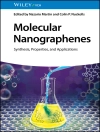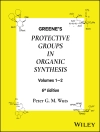Aerobic organisms have evolved to utilise the intrinsic oxidising power of oxygen from the atmosphere. This so-called 'activation’ of oxygen is often catalysed by a heme-containing enzyme. This book highlights the many and varied catalytic activities of O2-dependent heme–iron enzymes, including monoxygenases and cytochrome P450, dioxygenases, oxidases and model heme systems.
Dioxygen-dependent Heme Enzymes will be a useful resource for postgraduate students and researchers in biochemistry and metallobiology working in, or moving into, research areas involving heme proteins.
Spis treści
Dioxygen Binding and Activation Mediated by Transition Metal Porphyrinoid Complexes; Design and Engineering
of Heme Enzymes With O2-dependent Catalytic Activity; Myoglobin Derivatives Reconstituted with Modified Metal Porphyrinoids as Structural and Functional Models of the Cytochrome P450 Enzymes; Investigating Heme Enzymes with Expanded Genetic Codes; What Drives the Ratedetermining Step for Oxygen Atom Transfer by Heme Compound I?; Cytochrome P450 Decarboxylases; Oxygen Activation and Long-range Electron Transfer in Mau G; Biological Heme Degradation; Structure, Function and Regulation of Human Heme-based Dioxygenases; Modeling O2-dependent Heme Enzymes: A Quick Guide for Non-experts; Structures of Human Cytochrome P450 Enzymes: Variations on a Theme; Controlling the Regio- and Stereoselectivity of Cytochrome P450 Monooxygenases by Protein Engineering; Conformational Changes in Cytochrome P450cam and the Effector Role of Putidaredoxin; Oxygen Reduction and Proton Translocation by Respiratory Cytochrome c Oxidase; Structure and Function of Membrane-bound Bacterial Nitric Oxide Reductases; Mechanisms of Nitric Oxide Sensing and Detoxification by Bacterial Hemoproteins












